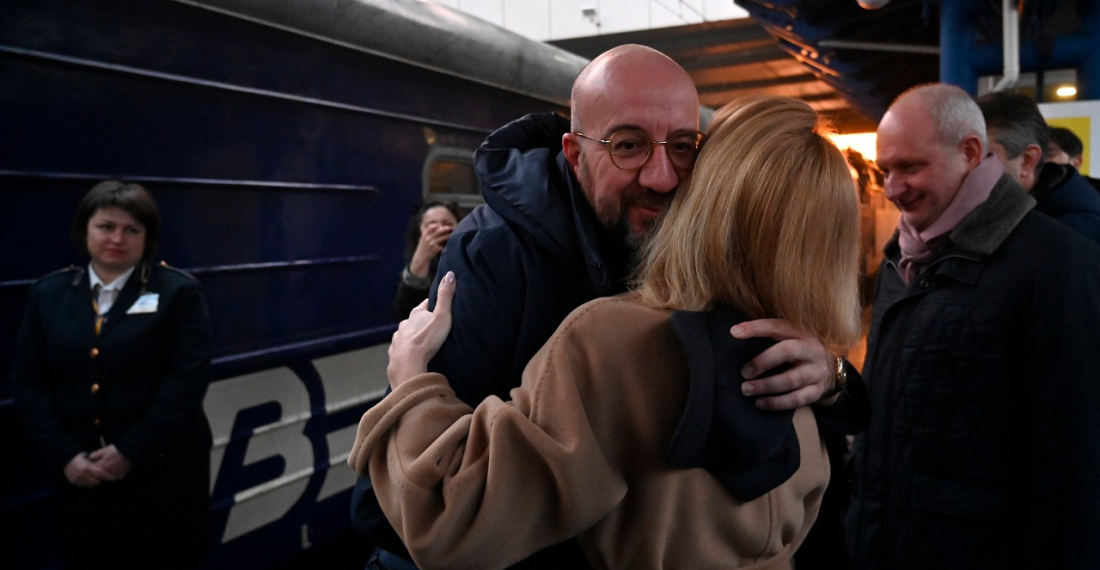The President of the European Council Charles Michel is in Kyiv, announcing his arrival on Twitter on Thursday morning (19 January).
In a video, he said:
"I am on my way to Kyiv because I will have the occasion to meet again with the President Volodymyr Zelensky and the Prime Minister, and members of parliament. And we know that the Ukrainians are resisting, and they are fighting. They are fighting for their land, they are fighting for the future, and for the future of their children. We all know they are also fighting for our common European values and principles. And also for the promise of European Union peace and prosperity. They need and deserve our support, and that is why we will discuss with President Zelensky and his team what are the measures we can develop in order to make sure they are stronger and more powerful."
In a speech to the European Parliament yesterday (18 January), President Michel explicitly expressed his support for supplying Ukraine with tanks, saying: "The time is now. They urgently need more equipment and I'm personally in favour of supplying tanks to Ukraine."
President Michel's visit comes amid increasing pressure on Germany to approve the re-export of German-made Leopard 2 tanks to Ukraine. NATO Defence Ministers will be meeting at the Ramstein Air Force Base in Germany on Friday to discuss measures to arm Ukraine.
Yesterday the Wall Street Journal reported that Germany would only be prepared to permit the export of German tanks to Ukraine if the USA provided their own. Meanwhile, Polish Prime Minister Mateusz Morawiecki also put further pressure on German Chancellor Olaf Scholz to approve the export of German-made tanks, saying to radio station PolskieRadio24:
"Consent is of secondary importance here. We will either obtain this consent quickly, or we will do it ourselves. Here, the most important thing is that the Germans - not only Germans, but also Danes, Finns, French and other nations, but above all Germans - offer their modern tanks and their modern equipment as soon as possible, because the ability to defend freedom in Ukraine may depend on it, so the security of the whole of Europe will depend on it."
Later in the day on 19 January, President Michel gave a speech to the Ukrainian Parliament in which he compared the Ukrainian people to Winston Churchill and Nelson Mandela:
"Winston Churchill used freedom and hope to as a weapon to strike back and defeat the Nazis. Nelson Mandela used his prison cell as a symbol of spiritual liberty to free his people and transform his country. Today, Volodymyr Zelensky embodies your spirit of national resistance. I'm absolutely convinced that the spirit of Churchill, the spirit of Mandela lives in the heart of every Ukrainian today. I have seen it with my own eyes in Odesa, in Borodyanka, and right here in Kyiv. You will win because of this spirit, and because you are not alone."






